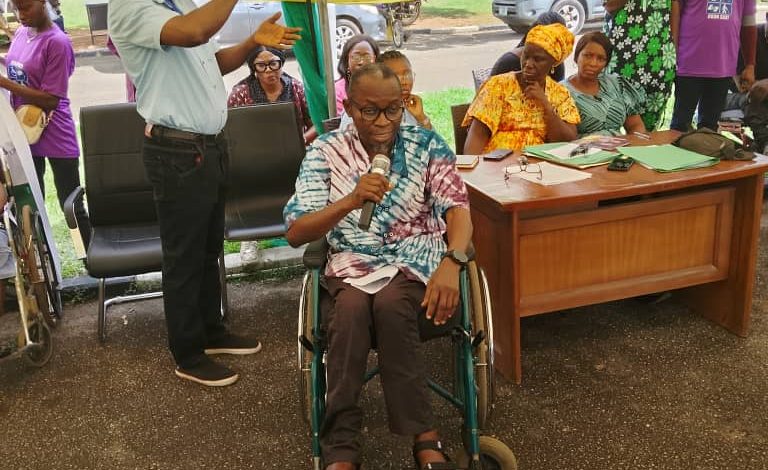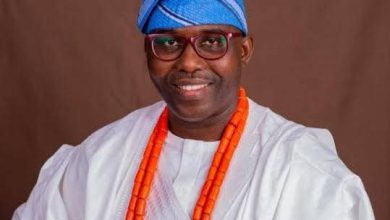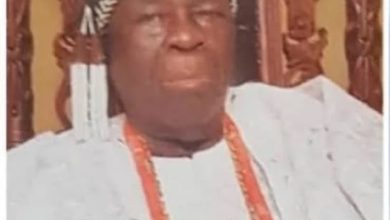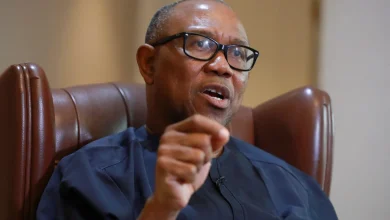
The Spinal Cord Injury Association of Nigeria has expressed reservations over the proposed Diversity, Equity and Inclusion Bill currently before the Ogun State House of Assembly.
The association said the proposed bill focuses largely on gender-based issues while concerns affecting persons with disabilities were only mentioned “in passing.”
It stressed that for the rights of the estimated 600,000 persons living with disabilities in the state to be fully protected in line with United Nations conventions, the Assembly should proceed with the consideration and passage of the amendment to the 2017 Ogun State Disability Law, which was submitted to the legislature in October.
Alternatively, the group said the Assembly may continue to work on the DEI Bill — which it noted clearly centres on gender issues — but should not substitute it for the amended disability law already before lawmakers.
The President of SCIAN, Abdulwahab Matepo, stated this in a memorandum submitted during the public hearing on the DEI Bill held at the Assembly Complex, Governor’s Office, Oke-Mosan, Abeokuta, on Wednesday.
Matepo recalled that after former Governor Ibikunle Amosun signed the state disability law in 2017, the disability community held a two-day amendment workshop that produced practical and actionable proposals aimed at strengthening the law in line with global standards.
He said, “The harmonised amendment draft was presented to the Ogun State House of Assembly through the Office of the Honourable Speaker, the Ministry of Justice and the Ministry of Women Affairs and Social Development in March 2025.
“This collective document was re-submitted to the House of Assembly following our second meeting with the Honourable Speaker on October 14, 2025.”
Matepo expressed shock that rather than prioritising the amendment and implementation of the existing law, the Assembly was now proposing a DEI Bill in which disability issues were “merely lumped together as one of several broad social groups.”
He insisted that the DEI Bill and its proposed commission “cannot replace, dilute or supersede the Ogun State Disability Law.”
He further stressed that the bill is insufficient to address the specific needs of persons with disabilities, who are estimated to constitute about 15 per cent of Ogun State’s population.
The association therefore demanded the immediate consideration and passage of the amendments to the 2017 disability law; the establishment of the Ogun State Commission for Persons with Disabilities with full statutory powers; and the operationalisation of the amended law through budgetary allocation and appropriate institutional frameworks.
Matepo said these steps were necessary to guarantee the rights, dignity and equal opportunities of persons with disabilities as provided under Nigerian law and international treaties.
Also speaking, the Chairman of SCIAN, Ogun State chapter, Ayodele Awobona, urged the Assembly to prioritise the 2017 law’s amendment rather than the new DEI Bill.
Responding, the Speaker of the Assembly, Oludaisi Elemide, said the bill was designed to promote equitable representation and bridge gender gaps.
He assured that the Assembly was working in response to the needs of the people and that all submissions at the public hearing would be considered in preparing the final draft of the DEI Bill.
Elemide added that the bill, when passed into law, would help protect vulnerable residents in the state.
Persons with disabilities in Nigeria continue to face significant challenges, including inadequate accessibility, widespread poverty and persistent attitudinal barriers.
While population estimates vary, recent figures suggest that as many as 25 per cent of Nigerians may be living with one form of disability or another. Many rely on families, NGOs and religious groups for support, while enforcement of protective laws remains limited.
Against this backdrop, the National Commission for Persons with Disabilities has continued efforts to enforce the 2018 Act, which guarantees the rights and privileges of persons with disabilities nationwide.
Punch news







